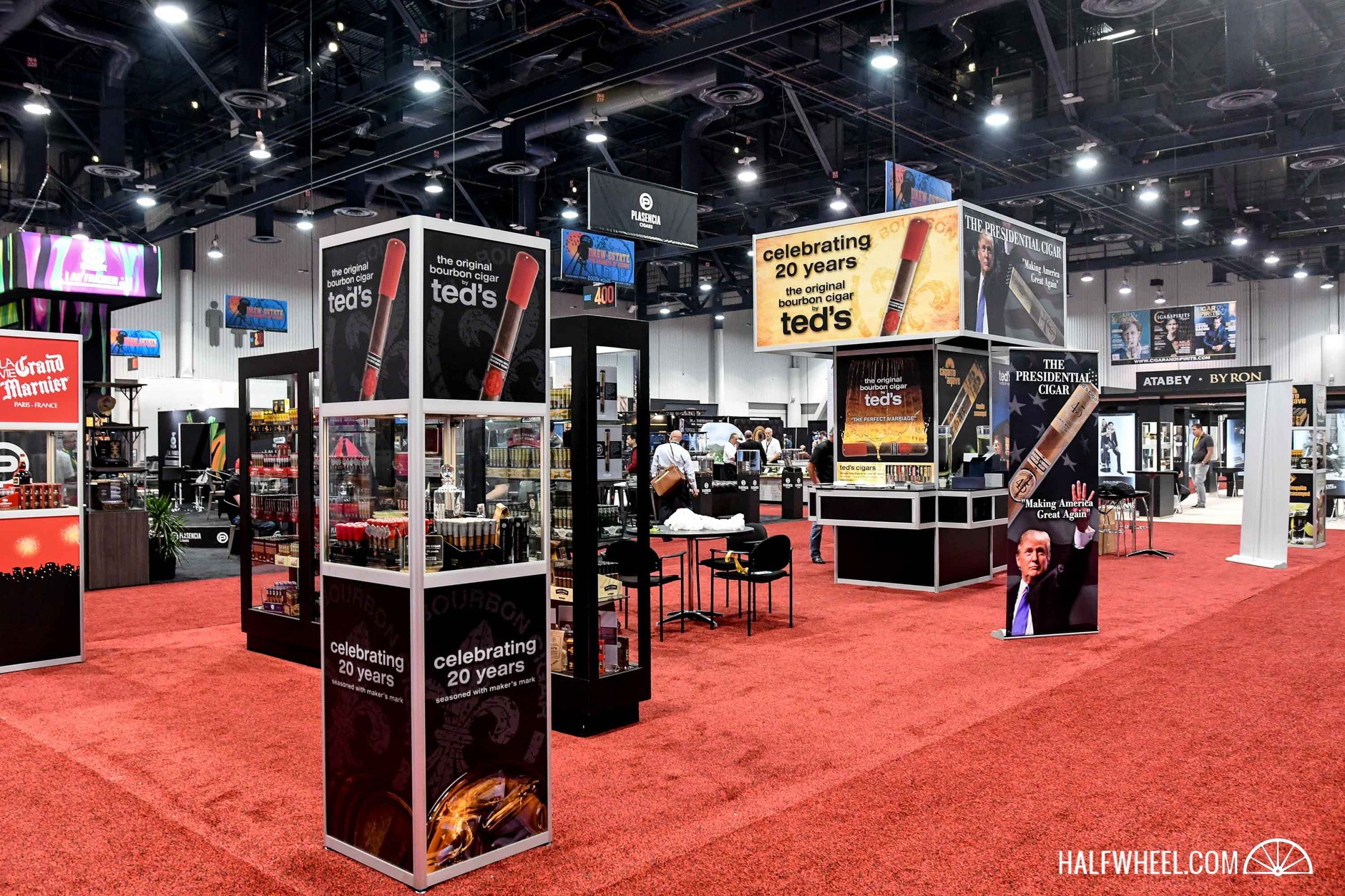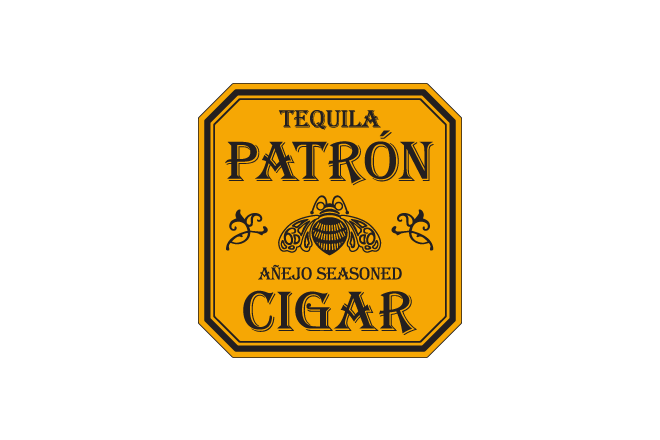A belated welcome to 2019.
As is the tradition at halfwheel—and actually before this website started—each year I ask 10 questions that will face the cigar industry in the upcoming year. The questions are my own; the predictions are my own and the speculation is sometimes right—see number nine.
About one year from now Patrick Lagreid will grade my predictions, but until now, the questions.
1. HOW DOES NICARAGUA FARE IN 2019?
I would be remiss if I didn’t start this list with Nicaragua.
A series of protests in the spring led to destabilization in Nicaragua, one of the cigar industry’s most important manufacturing areas and the largest source of growth for the industry in recent years. The situation in Nicaragua led to government crackdowns of people, media outlets and other businesses, nationwide protests, the fleeing of thousands of Nicaraguans, and most importantly, the deaths of hundreds of Nicaraguans.
Its effects in the cigar industry were felt and continue to this day. Typically, the cigar industry’s calendar begins in Nicaragua; shortly after the factories resume operations, cigar smokers and industry personnel from all over the world gather in Nicaragua for Puro Sabor, the country’s annual cigar festival. This January, there will be no Puro Sabor.
While Nicaragua might be safe for visitors, it’s still not safe enough for companies to risk large groups of visitors.
At one point it seemed possible that the country’s leader, Daniel Ortega, might step down due to the protests and pressure from outside groups and countries, but that idea was quickly quashed.
The question now is what—good, bad or otherwise—happens next.
Prediction: Unless the 2021 presidential elections get moved earlier, which seems highly unlikely, Nicaragua will look the same a year from now as it does today. I imagine Puro Sabor 2020 will happen and Drew Estate will reopen Cigar Safari.
2. HOW FAR ALONG IS FDA’S FLAVORED CIGAR BAN BY THE END OF 2019?
Annual FDA question, done.
In late 2018, the U.S. Food & Drug Administration (FDA) announced plans to ban flavored cigars as part of proposed sweeping new regulations, ostensibly to try to combat the growing use of e-cigarettes, particularly by minors. While combatting children using e-cigarettes is a priority for FDA, no one seems to think FDA will be able to enact the measures quickly, which also include new regulations for e-cigarettes and perhaps most controversially, a ban on menthol.
This maneuver seems likely to put FDA against just about every segment of the tobacco industry. Big tobacco—companies like Altria and British American Tobacco—will almost certainly oppose the menthol ban portion of the regulations. Swisher International, Imperial Brands, plc and others will oppose the ban on flavored cigars. Certain members of the premium cigar industry—Davidoff of Geneva USA, Drew Estate, La Aurora, Miami Cigar & Co., Nat Sherman, Rocky Patel Premium Cigars, Inc., Scandinavian Tobacco Group and at least a dozen other companies—would be noticeably affected by a ban on flavored cigars.
The e-cigarette industry also has large investments from big tobacco, including a recent $12.8 billion investment from Altria in Juul Labs, the company most responsible for FDA’s recent wrath.
In short, there will be lawsuits, perhaps more lawsuits than FDA has ever seen from the tobacco industry over a singular action. I have to imagine FDA will split up each part of the regulation into a separate action, but even that precautionary measure may not happen next year.
Prediction: Flavored cigars will still be very much legal by the end of 2019.
3. DO THE CIGAR TRADE GROUPS REACH AN AGREEMENT WITH FDA IN THE LAWSUIT?
Just kidding, here’s another FDA question.
For those not keeping track of the lawsuit brought by three cigar trade groups against FDA over the deeming regulations, it’s in somewhat of a holding pattern.
Most recently, the three groups indicated they would ask FDA to delay the deadline for harmful and potentially harmful constituents (HPHC) testing, currently set for Nov. 8, 2019. We’ll likely know more next week when the two sides will give another status update to the lawsuit.
With all that said, lawsuits are expensive and while support for the lawsuit remains strong, it won’t be indefinite, particularly not without more results. I wonder if while FDA ramps up its efforts against e-cigarettes and vaping products—see below—the agency doesn’t try to offer the cigar industry a deal. At some point, both FDA and the cigar industry will want to get back to their respective businesses, which aren’t carried out in a courtroom.
As I’ve argued before, the cigar industry will also need to take stock of its strategy as the next presidential election nears and the possibility arises of a less business-friendly administration.
Prediction: No deal in 2019, but look out 2020.
4. DOES FDA SEPARATE E-CIGARETTES/VAPING PRODUCT FROM THE REST OF THE DEEMING REGULATIONS? AND IS THAT GOOD FOR CIGARS?
FDA has gotten increasingly aggressive when it comes to laying out its plans for future regulations pertaining to e-cigarettes and vaping products and I wonder if we see the agency single out the category. The aforementioned Altria investment into Juul seems to be accelerating these efforts.
https://twitter.com/SGottliebFDA/status/1078303338498850816
I think that it’s likely that the e-cigarette and vaping world receive different sets of rules in 2019, but I’m not sure whether that is a good thing to the cigar world. One of the central arguments used by the cigar industry in regards to why it shouldn’t be regulated, or at least regulated differently, is that it’s not part of the main problem FDA is trying to address, namely, youth use of tobacco.
Creating a separate category of rules for e-cigarettes and vaping products would be an acknowledgment by FDA that cigars are at least not like e-cigarettes, but it might also reduce the desire for various parts of government to go a step further and then lessen the regulatory burden for the cigar world.
I’ve always argued that cigars were collateral damage to FDA’s overall mission and I think we will see a new wrinkle to that in 2019.
Prediction: The e-cigarette and vaping world will get additional rules that won’t apply to cigars, though it won’t help the cigar industry.
5. IS 2019 THE YEAR WE SEE MARIJUANA-INFUSED CIGARS FROM PREMIUM CIGAR MAKERS?
There’s at least one cigarillo that uses cannabidiol oil (CBD), but it’s an Al Capone variety that seems to only be sold in Switzerland. Jas Sum Kral has announced plans for a premium cigar with CBD oil, but CBD isn’t marijuana and that cigar isn’t out yet.
Marijuana has a much brighter future than tobacco at the moment and it is only a matter of time before a cigar manufacturer decides to make a premium cigar with marijuana inside. There are a few roadblocks to that happening; namely, marijuana isn’t legal in places where cigars are rolled. As such, it seems challenging to believe that within any sort of short time frame there will be a cigar company you’ve heard of selling a product with marijuana leaf inside, but it’s coming.
I suspect this ultimately plays out with a cigarmaker abandoning cigars altogether and taking their expertise to a country where marijuana production is legal, but I don’t think 2019 is the year that happens.
Prediction: There will be more CBD cigars, but outside of a few handrolled singular operations—i.e. stores that roll their own cigars—long filler marijuana cigars will take some time from established manufacturers.
6. DOES MOVING THE IPCPR CONVENTION & TRADE SHOW PAY OFF?
If you aren’t in the cigar industry, you probably can skip this.
This year, the IPCPR Convention & Trade Show will move back to the Sands Expo Center, better known for its hotel, the Venetian. In addition, the trade show will begin in late June, which is likely the earliest the trade show has ever been.
While the move to the Venetian will be welcome to many people who were not fond of the previous two year’s official hotel, the Westgate, the date of the event is a problem. It runs June 28-July 2.
The good news is many attendees only stay through day three, meaning people would be heading home late Monday or Tuesday before July 4th, which is a Thursday. The bad news is, it still butts right up against a major holiday and one of the busier cigar-selling periods of the year.
I would imagine that after two years of a myriad of complaints about the Westgate, the IPCPR worked to move the event back to the Sands, but was only offered dates that weren’t ideal. Ultimately, the decision was made to go to the better location at a worse date hoping to not only reduce the complaints of those who are there, but also increase attendance of those who aren’t there.
Prediction: Attendance will be slightly down at the 2019 IPCPR Convention & Trade Show.
7. WHO IS HURT MORE BY HAVING THE PROCIGAR FESTIVAL AND THE HABANOS FESTIVAL DURING THE SAME WEEK?
In short, there’s about nothing good that is going to come from this scheduling snafu.
I’m not sure why Habanos S.A. felt like making its festival one week earlier was a good idea. The end result means the two most popular cigar festivals—Cuba’s Festival del Habano and the Dominican Republic’s Procigar Festival—are now on the same week, which will force some people to choose between the two.
Ultimately I think the difference won’t be terribly noticeable for most, other than when it comes to the European media contingent who cover both festivals. I don’t know much about the Festival del Habano’s registration process, but given what I’ve seen from Procigar, it doesn’t seem like the Dominican Republic’s festival is going to be any less attended than in prior years.
Prediction: Cuba will see the bigger drop in attendance, but I’m not sure how much of that is due to scheduling.
8. HOW MANY STORES IS CIGARS INTERNATIONAL OPERATING BY THE END OF 2019?
The most fascinating question involving the cigar industry’s most important retailer.
Currently, Cigars International is operating four stores, maybe five. There are the three Cigars International stores in Pennsylvania and the new CI superstore in The Colony, Texas. There’s also the Thompson Cigar Co. location in Tampa, Fla., which Cigars International acquired last year.
For years, Thompson has operated a retail store within its warehouse; it is likely the weirdest retail location in America. The store—which looks like it’s a pop-up location that lasted too long and could be disassembled in about a day—generates some big numbers in revenue. This is despite the fact that it’s in an industrial park and not a retail shopping center, there’s no lounge and parking can be challenging.
Cigars International has taken a cautious approach to its retail operation. While it announced plans for two stores in the Dallas-Forth Worth area, the second store hasn’t even started construction.
For years, sources have always said that Cigars International would look to Florida and Texas first. Both are states with large populations, low taxes and a lot of land—an ideal combination for the company’s idea of a destination storefront. Florida seems very much on the table for the next area of expansion, but the new retail presence won’t be open by the time the Thompson operation is shut down, expected in mid-2019.
Prediction: Five stores, i.e. one more Texas store, with the first (new) Florida location just about to open as we head into 2020.
9. DOES THE CALIFORNIA CRACKDOWN ON DUAL LICENSES HAVE AN EFFECT?
Late last year, California announced that it would no longer allow companies to hold both a tobacco distributor license and a tobacco wholesaler license. The move was to prevent companies from using two licenses to skirt the state’s taxes on cigars.
The loophole allowed companies to report the value of their cigars to the California at less than what they intended on selling them in the state. After paying taxes, the company could sell the cigars from one entity to another before selling them to a retailer. That meant some companies were able to keep prices lower, even after the state more than doubled its tax on cigars in mid-2017.
With the loophole now closed, it’s likely that some companies’ products will undergo the massive tax hikes that others experienced in mid-2017. It comes in a state where cigar shops already struggle, and not just because of the massive taxes and other regulations. California’s population and demographics make it one of the largest states in terms of the total amount of cigars purchased by most estimates, but also an extremely fragmented market thanks to demographics.
Prediction: The decline of brick and mortar retailers in California will continue in 2019.
10. WILL ANY STATE TO TRY TO APPLY TOBACCO TAX TO OUT OF STATE ORDERS?
Last year, the Supreme Court ruled that states can require their sales tax to be applied to orders shipped to the state from retailers outside of the state, i.e. the Amazon tax. As I argued then, I didn’t think the effects of sales tax alone wouldn’t be massive, though the ability for a state to charge its tobacco tax on orders that ship from other states could be huge.
As more and more of the total cigar sales move to online and catalog retailers, the number of cigars sold by brick and mortar retailers is likely decreasing. Some of those effects are likely offset due to the fact that cigars are getting more expensive, meaning the revenue loss from tobacco tax is lessened, if even present at all.
However, if a state like California could charge its 68 percent wholesale tax on all orders shipped to consumers in the state, it could change the way the cigar world operates. Furthermore, it would likely mean that some retailers would probably stop shipping to certain states due to the complications, and I imagine that some smaller online retailers would shut down altogether.
But in order for that to happen, a state will probably need to change its laws, then a retailer will sue and then we might have a resolution to whether this is in fact legal.
Some states have tried going after customers for out of state orders, namely Ohio. Others like Georgia have tried going after retailers who opted to not pay state tobacco tax on out of state orders. But those actions were prior to the Supreme Court ruling.
Prediction: Not in 2019, but it’s coming and I expect Ohio to be leading the charge.



